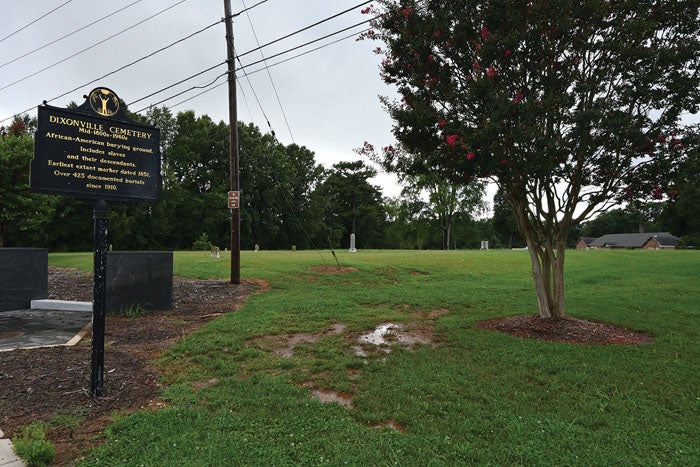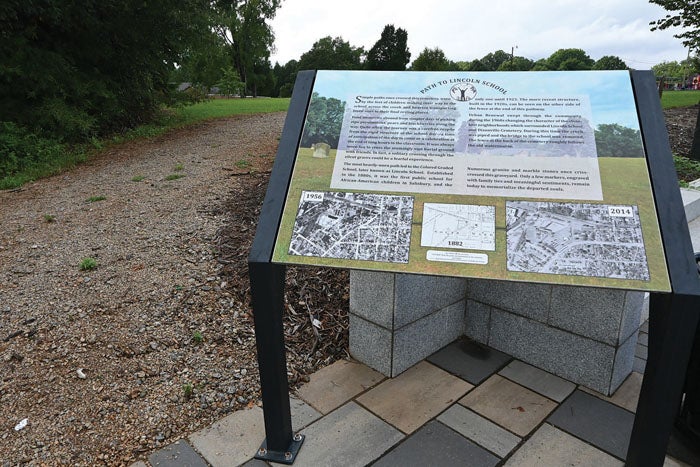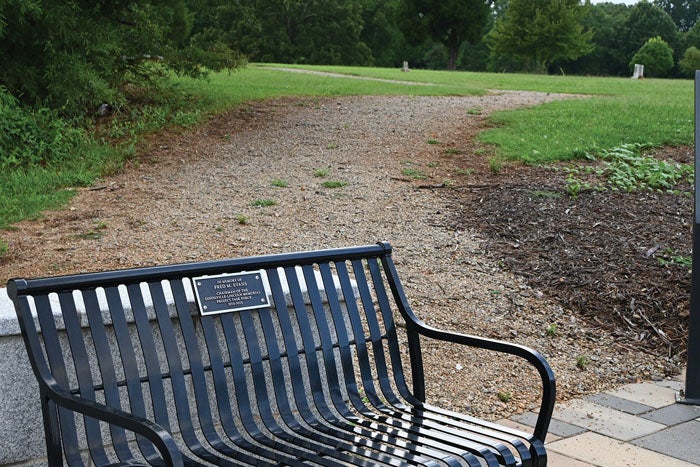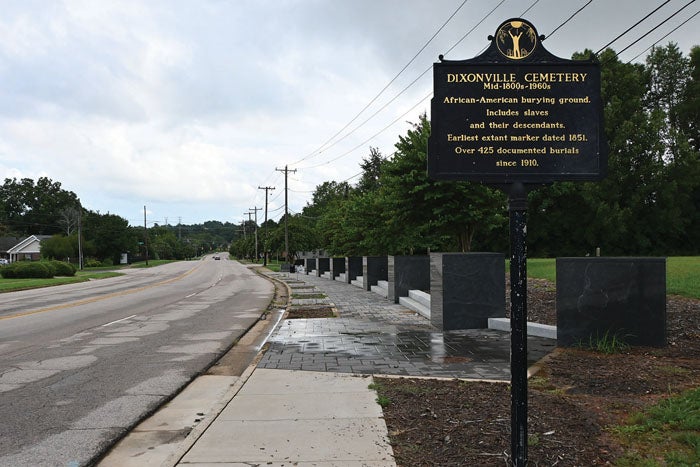Interpretive walk construction begins for Dixonville-Lincoln Memorial project; set to be completed in December
Published 12:05 am Sunday, August 16, 2020
By Natalie Anderson
natalie.anderson@salisburypost.com
SALISBURY — Locals are moving on to the next step in honoring hundreds of buried African Americans and the Dixonville community by implementing an interpretive walk and seating area at the site of the Dixonville-Lincoln Memorial.
The goal of the Dixonville-Lincoln Memorial project is to pay tribute to hundreds of African-Americans buried at the Dixonville Cemetery and provide the community with the history of the Dixonville community, which was located on the east side of Salisbury. Much of the Dixonville community was impacted by urban renewal in the ’60s.
The site, located at 210 Old Concord Road, represents a centerpiece of a tight-knit neighborhood and a pathway for children attending the historic Lincoln Elementary School, which was the first school opened for African-American students in Salisbury in the late 1800s.
The second phase, set to be completed in December, will implement an interpretive walk and seating area, which will connect the Memorial Walk with interpretive stops along a perpendicular path to a high point in the cemetery. There, visitors will be able to gather, study and reflect on the history of the cemetery and Dixonville neighborhood, said Dixonville Memorial Task Force Chair Emily Perry.
Though not part of the original plan, Perry said Rowan-Cabarrus Community College has offered to implement a “Here is My Story” bench, which will provide “another way to tell the story of the East side.”
“This project belongs to the community,” Perry said. “We couldn’t have done it without the community.”
In addition to comments from various locals about the site, the project will also include engravings on the headstones of nearly 500 African Americans who have been identified as being buried there since 1910, according to local historian Betty Dan Spencer. Perry said she believes there are still many more that have yet to be identified, adding that the earliest known burial honors Mary Valentine, who died in 1851.
Other prominent African-American residents of Salisbury are buried at the cemetery, including Bishop John Jamison Moore, who founded the AME Zion Church in western North Carolina, and the Rev. Harry Cowan, a minister who was born into slavery but went on to establish 49 churches and baptize 8,500 people.
“I cannot state how important it is that we know our history,” Perry said.
Since the beginning of the project in 2010, the Dixonville Task Force has made repairs to existing grave markers, installed a history sign along the street curb, marked front corners with granite planters and restored a foot path that bisects the property from Old Concord Road to Lincoln Elementary. Additionally, a seating area is designated to the memory of Fred M. Evans, a former Dixonville resident and Memorial Task Force chair.
Others originally involved with the memorial project who have since passed include the late William C. Peoples, Floyd A. Kerr III and Eleanor Qadirah.
“Dixonville has long been a centerpiece in what was formally the Dixonville neighborhood on the east side of Salisbury,” Perry said, adding that children walked through the cemetery on their way to Lincoln Elementary School. “Some of us would stop along the way to get pecans or whatever figs that may be growing on the trees there.”
While the three-phase project will require $570,000, $200,000 was set aside in the city’s 2019-20 fiscal year budget for the second phase, but it has not yet been allocated. At an Aug. 4 Salisbury City Council meeting, council members adopted a budget ordinance to allocate the $200,000 from the 2020-21 fiscal year Fund Balance for the second phase.
Council members also authorized city manager Lane Bailey to execute an agreement with Unit Paving Inc. in the amount of $257,289 for the second phase.
“I’m very excited to be able to see this project move forward and so proud of the work of Emily Perry and her whole team of people, both staff and community members, over many, many, many years,” said Mayor Karen Alexander at the Aug. 4 City Council meeting.
Though the pandemic led to the cancellation of this year’s annual Ministers of Comedy charity fundraiser event, Perry said $57,289 has been raised for the second phase of the project from donors including the Blanche and Julian Robertson Foundation, the Salisbury Community Foundation, the Margaret C. Woodson Foundation, the National Society of the Colonial Dames of North Carolina, the Evans family, the Cannon Foundation and other private donors.
The third phase of the project will entail a revitalization of Lincoln Elementary School, known as the “focal point” of the community, Perry said. The revitalization plan will transform the long-vacant historic school into a useful space, likely senior housing, as well as reconstruct the footbridge used by children to get to the school.
Perry said not many people are alive today to describe the historical significance and story of the Dixonville community. She added that it wasn’t unusual to have standing-room-only at PTA meetings held at the elementary school.
Alyssa Nelson, the city’s urban design planner, said it’s taken a long time for the committee to get where it’s at today. She reminds locals that an active GoFundMe account is still accepting donations for the project, which can be found by visiting dixonvillememorial.com/Task-Force. Since 2017, the task force has raised $482,578 of the $570,000 goal for the project.
Contact reporter Natalie Anderson at 704-797-4246.







